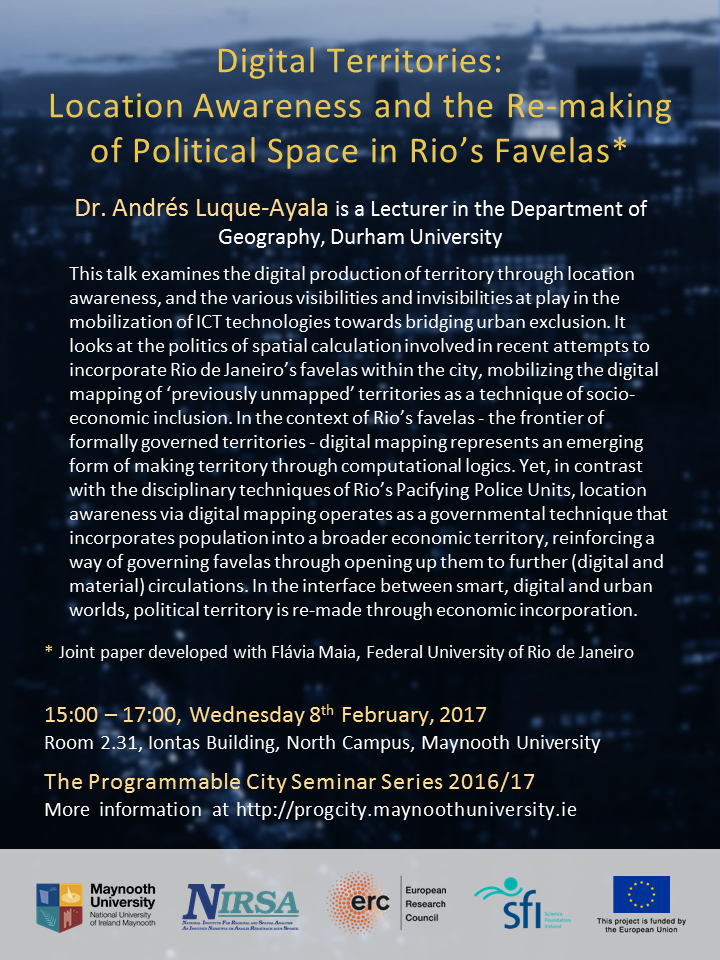Rob Kitchin, Claudio Coletta and Gavin McArdle have published a new Programmable City working paper (No. 25), ‘Urban informatics, governmentality and the logics of urban control ‘, on SocArXiv.
Abstract: In this paper, we examine the governmentality and the logics of urban control enacted through smart city technologies. Several commentators have noted that the implementation of algorithmic forms of urban governance that utilize big data greatly intensifies the extent and frequency of monitoring populations and systems and shifts the governmental logic from surveillance and discipline to capture and control. In other words, urban governmentality is shifting from subjectification – molding subjects and restricting action – to modulating affects, desires and opinions, and inducing action within prescribed comportments. We examine this contention through an examination of two forms of urban informatics: city dashboards and urban control rooms and their use in urban governance. In particular, we draw on empirical analysis of the governmental logics of the Dublin Dashboard, a public, analytical dashboard that displays a wide variety of urban data, and the Dublin Traffic Management and Incident Centre (TMIC) and its use of SCATS (Sydney Coordinated Adaptive Traffic System) to control the flow of traffic in the city. We argue that there is no one governmentality being enacted by smart city technologies, rather they have mutable logics which are abstract, mobile, dynamic, entangled and contingent, being translated and operationalized in diverse, context-dependent ways. As such, just as disciplinary power never fully supplanted sovereign power, control supplements rather than replaces discipline.
Download here


